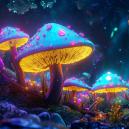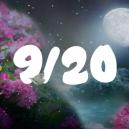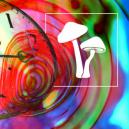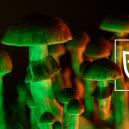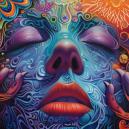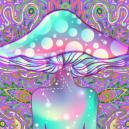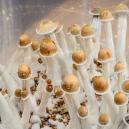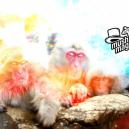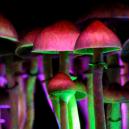What Is The Difference Between LSA and LSD?
Published :
February 12th, 2018
Categories :
Research

LSD and LSA share a common precursor, but differ in the way they perform as psychedelics. Each compound behaves differently in the human brain, and the effects can vary from person to person. What are the differences between these two legendary substances?
LSD & LSA: WHAT’S THE DIFFERENCE?
LSD and LSA are two different expressions of the precursor compound lysergic acid. Lysergic acid, d-lysergic acid, or D-lysergic is one of a number of ergoline alkaloids produced by the ergot fungus and several species of flowering forest vine. Whereas LSD is a clear fluid synthesised from the ergot fungus, LSA is usually ingested in the natural form of seeds.
Both compounds affect the serotonergic system of the brain. Serotonin or 5-HT is a neurotransmitter responsible for many thought processes and the interpretation of vision. Lysergic acid-type compounds cause changes in thought architecture and the way the brain processes information. The hippocampus (emotion) and the visual cortex are particularly affected, experiencing extensive cross-connectivity of normally unconnected regions. In plain terms, that's “tripping” folks.
LSA

LSA or d-lysergic acid amide (ergine) is an alkaloid derived from a number of species of tropical vines and some fungi. Commonly, it is sourced from Hawaiian baby woodrose or morning glory seeds. The seeds can be chewed and eaten directly, or they can be made into an extract. An effective medium dose is considered to be 500μg. Numerous pre-Columbian cultures have used plants containing LSA for rituals and spirit walking for thousands of years. The contemporary rediscovery of these sacred plants was in 1941 when Richard Schultes described morning glory use among Mexican Native Americans.
Although they can vary from person to person, the effects of LSA generally include mild sedation, mild visual hallucinations, and a unique psychedelic experience. Nausea, headaches, and gas are the negative side effects of LSA; although, these are largely attributed to the menu of other alkaloids and unfriendly compounds present in the seeds. Don’t overdo it with eating seeds, they can make you quite sick. A/B or polar extractions of LSA cause considerably less nausea.
LSA is not restricted.
LSD

LSD or d-lysergic acid diethylamide is an alkaloid synthesised from the chemical ergotamine found in the ergot fungus. For good or ill, “acid” has its place in contemporary history. It has sustained a cultural impact that began in 1938, reached a crest in the hippie 60s, then made a resurgence in the raving late 80’s and early 90’s. It is still enjoyed by millions to this day for recreational fun and shamanistic journeys.
LSD is a powerful hallucinogen that physically transforms the brain. It provides a hallucination-rich and crisply clear experience. Full sensory hallucinations, as well as alterations in perception of reality with enhanced feelings of emotion are the common themes. There are no physical side effects from taking LSD, but there is a risk of psychological stresses such as anxiety, or at worst, psychosis.
LSD is illegal.
TWO SIDES OF THE SAME COIN
There is no avoiding an LSD trip. Once it has you, it has you; you are in for a dosage-dependant, intense psychedelic adventure. Visual hallucinations can be extreme, and complete (temporary) dissociation from reality is possible. LSA can be more elusive and involves greater physical side effects when consumed in seed form. When taken in the appropriate set and setting, some individuals report a trip as intense as LSD, but without the synesthesia. Others get nothing from LSA but the anaesthetic-like sedation and a fitful sleep with a funny tummy. Thank the mysteries of the little understood serotonergic system and how it varies from individual to individual for that odd twist.
Generally speaking though, each drug provides emotional and spiritual intensity, with LSD providing substantially more visual hallucinations and synesthesia. A fundamental difference can be you. Each drug will sustain different effects on different people. Some people don’t like LSA, claiming that nausea, vertigo, lack of visuals, and sedation aren’t worth the effort. Others argue quite the opposite, citing intense visuals with very little sedation, and an experience not unlike LSD.







